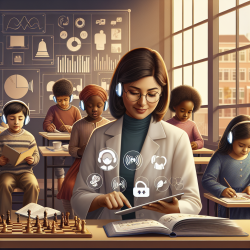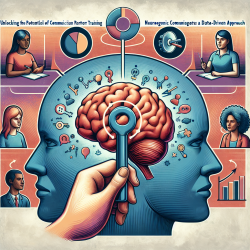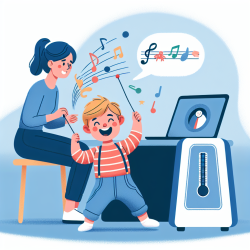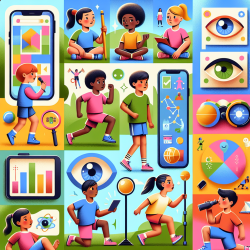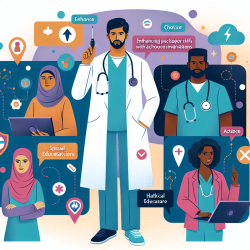In the rapidly evolving field of speech-language pathology, staying abreast of the latest research and technological advancements is crucial for delivering optimal outcomes for children. One such advancement is highlighted in the research article titled "Development and accuracy of a hearing screening application" published in the Brazilian Journal of Otorhinolaryngology. This study introduces a mobile application, Ouviu, designed for hearing screening and compares its efficacy with the traditional HearCheck tool.
Hearing impairment in children can lead to significant linguistic, educational, and psychosocial challenges. Early detection through effective screening is vital. The study by Bauer et al. (2021) underscores the importance of utilizing advanced tools for hearing screening, particularly in environments like schools where early intervention can make a substantial difference.
Key findings from the research include:
- The Ouviu application demonstrated a sensitivity of approximately 97% in identifying hearing loss, compared to 79% for HearCheck.
- The positive predictive value for Ouviu was 94%, indicating a high probability that individuals identified by the app indeed had hearing loss.
- The app significantly reduced false negatives (3%) compared to HearCheck (21%), ensuring fewer cases of undetected hearing loss.
These findings suggest that the Ouviu app is not only more accurate but also offers several practical advantages:
- Portability: The app can be used on iOS devices, making it easy to implement in various settings.
- Cost-Effectiveness: Unlike traditional tools that require additional hardware, the app leverages existing mobile devices, reducing costs.
- Ease of Use: The app's interface is user-friendly, allowing even non-audiologists to conduct screenings effectively.
- Environmental Noise Assessment: The app includes a feature to measure environmental noise, ensuring accurate results even outside controlled environments.
For practitioners, integrating such technology into their screening protocols can lead to more reliable and timely identification of hearing issues, facilitating early intervention and better outcomes for children. Encouraging further research and adoption of these tools can significantly enhance the quality of care provided in educational settings.
To read the original research paper, please follow this link: Development and accuracy of a hearing screening application.
